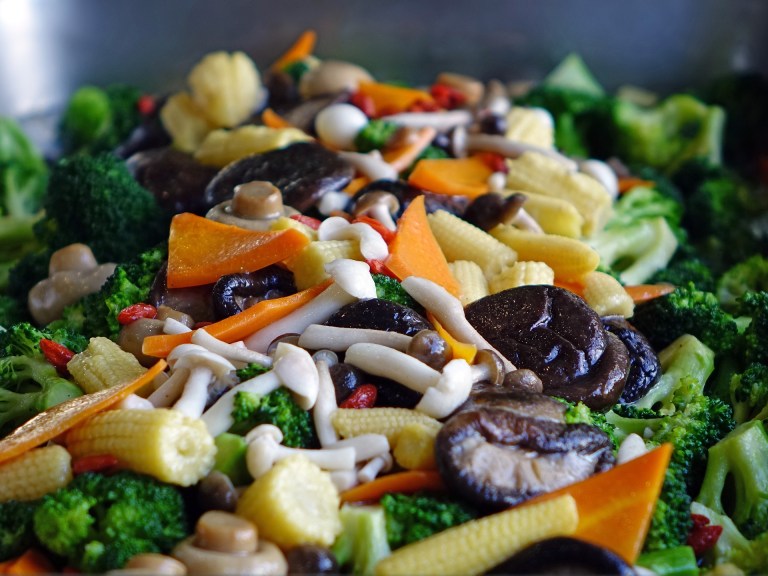
Should we eat raw vs. cooked greens and vegetables? I want to explore the question more fully, and also try and explain what the vitamins and minerals we require do for the body.To begin, I want to categorise the various vitamins and minerals that the body requires. Vitamins can be divided into 2 types: water soluble and fat soluble.
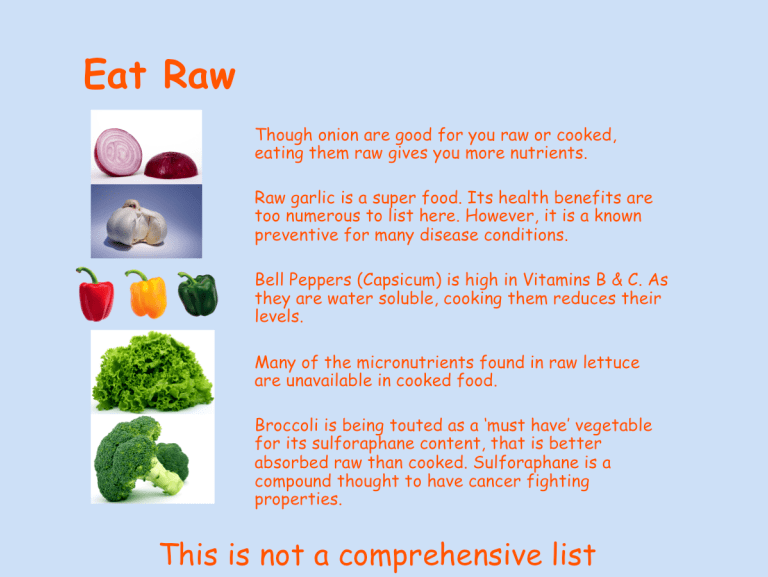
Water Soluble Vitamins are vitamins that can dissolve in water. Water soluble vitamins are carried to the body’s tissues but are not stored in the body. They are found in plant and animal foods or dietary supplements and must be taken in daily. Vitamin C and members of the vitamin B complex are water-soluble.
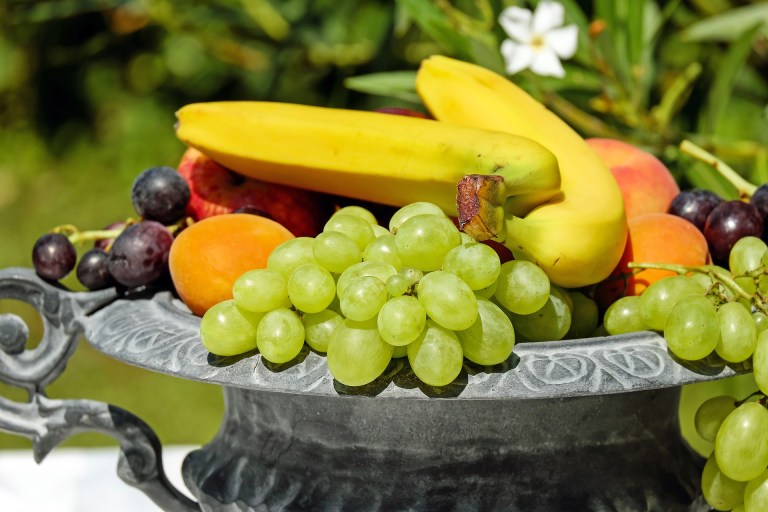
Other than citrus fruit, papaya, strawberries, kiwi, melon and guava, there are vegetables that a good sources of Vitamin C. These include dark leafy green vegetables, tomatoes, capsicum and cauliflower. Bioavailability of Vitamin C is better when raw.
The Vitamins in the B complex family that includes B1, B2, B3, B5, B6, B7, B9 and B12 are best eaten raw for greater bioavailability, as they are also water soluble.
Dark green vegetables, whole grains, beans, and peanuts are the best sources of Vitamin B1 (Thiamin). Thiamin regulates appetite and supports the body’s metabolism.
Almonds, Brussels sprouts, spinach, soybeans, milk and yogurt are some good sources of Vitamin B2 (Riboflavin). Riboflavin plays an important role in producing energy in the body.
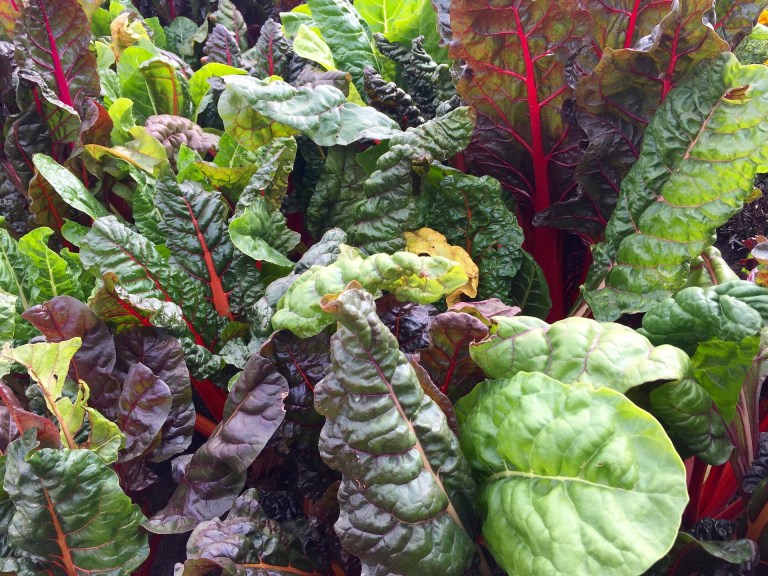
Vitamin B3 (Niacin) is available in beans and green vegetables. Niacin also plays an important role in producing energy in the body as well as help in its detoxification.
Avocados, yogurt and legumes are some of the sources for Vitamin B5 (Pantothenic Acid), and is used by the body to metabolise and synthesise proteins, carbohydrates and fats.
Vitamin B6 (Pyridoxine) is available in bananas, leafy green vegetables such as spinach, and potatoes, and helps keep red blood cells healthy.
Vitamin B7 (Biotin) is found in soya beans, cheese and strawberries. It helps convert our food into energy.
Some sources for Vitamin B9 (Folate and Folic Acid) include leafy greens such as spinach and turnip greens. Fresh fruits and other vegetables are also excellent sources of folate. Folate’s main role is in the production of red blood cells in the body.
Vitamin B12 (Cobalamin) is only available naturally from animal sources, though milk, cheese and yogurt contain significant amounts. For vegetarians who do not consume dairy products, many soy and cereal products are fortified with Vitamin B12. Cobalamin also aids in the production of red blood cells.
All the B Vitamins are better eaten raw.
Fat Soluble Vitamins are vitamins that can dissolve in fats and oils. Fat-soluble vitamins are absorbed along with fats in the diet and can be stored in the body’s fatty tissue. They come from plant and animal foods or dietary supplements. Vitamins A, D, E, and K are fat-soluble.
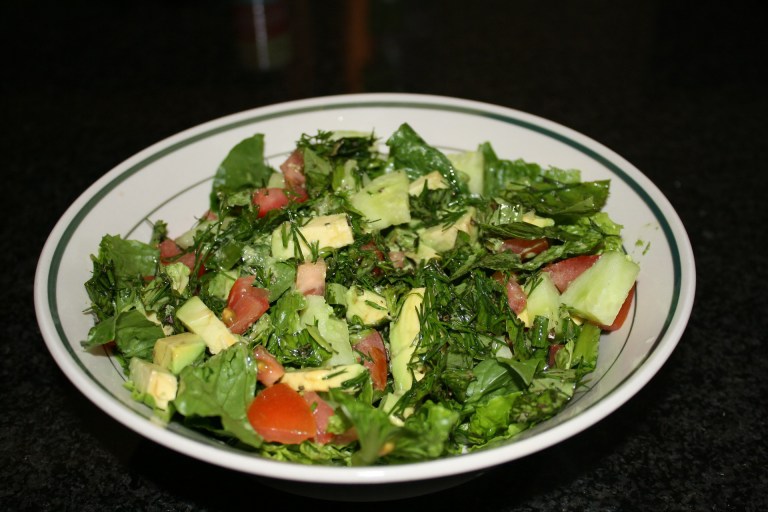
Did you ever wonder why salad dressing contains both oil and vinegar? The oil helps us to better absorb the fat soluble vitamins in your salad bowl, and the vinegar, which has a high content of a compound called ascetic acid, helps the body absorb minerals, including calcium better.
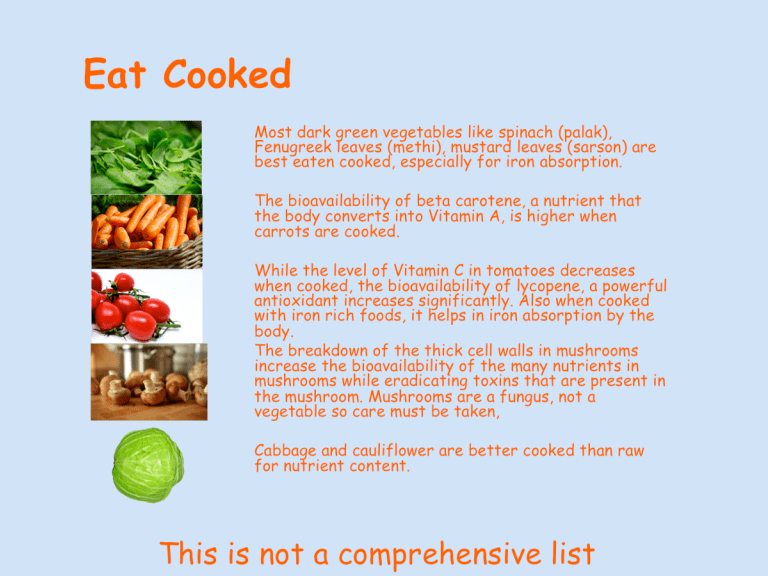
Vitamin A helps our eyes and general body condition. It is available in carrots, sweet potato, pumpkin, tomatoes, leafy greens and red capsicum. Vitamin A is bioavailable both raw and cooked. However, its absorption increase when stir fried in oil or with oil in a salad dressing if eaten raw.
Vitamin D plays a vital part in the absorption of calcium by the body, and may also have a role in cancer prevention. Mushrooms and soya bean milk and tofu are some vegetarian sources of Vitamin D. We also absorb Vitamin D from exposure to direct sunlight. Greater bioavailability when eaten stir fried in a little oil.
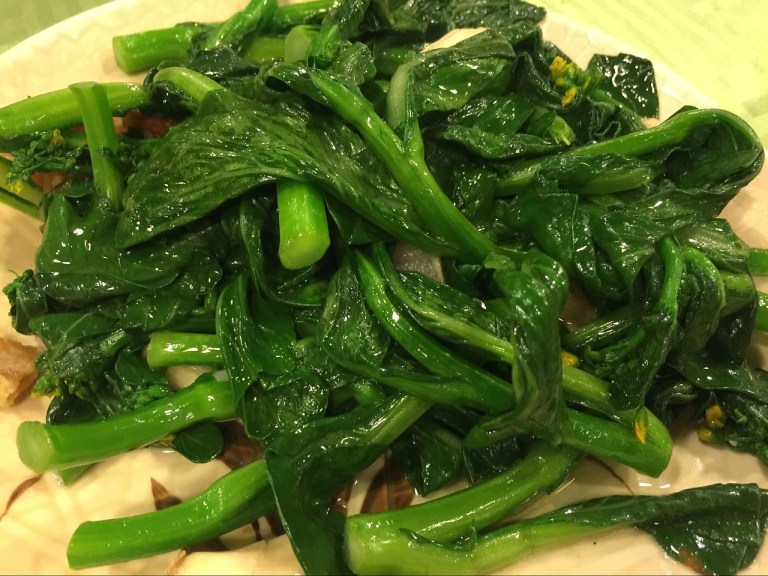
Among its many functions, Vitamin E helps boosts the immune system. Almonds are the best source of Vitamin E, though most seeds and green leafy vegetables also are good sources. Eat stir fried or with a little salad oil for greater bioavailability.
Vitamin K is an important nutrient that aids the blood in normal clotting and assists in the distribution of calcium in the body. Leafy green vegetables are good sources of Vitamin K. Eat stir fried or with a little salad oil for greater bioavailability.
Although milk, paneer and yogurt are the best sources of calcium, non-dairy vegetarian sources are also available. Soyabean, moringa, spinach, ladies fingers, and other dark green leafy vegetables provide most of the daily calcium requirements. The greens yield more calcium when cooked. Raw spinach (1 cup) has 29.9 mg of calcium. When cooked it gives 244.8 mg of calcium. However, a compound called oxalate, that binds itself to calcium, is also present in spinach reducing the bioavailability of some of this calcium. Adding vinegar to your food help in calcium absorption.
Potassium loses 15-20% of its values when cooked and is best consumed in raw foods. Some good sources for potassium are banana, avocado, watermelon, coconut water and yogurt. Potatoes, as well as sweet potato or yam, though eaten cooked, are also good sources of potassium. Potassium helps the body control blood pressure.

Zinc helps regulate the immune system. Beans, grains, nuts, seeds and dairy products are the best vegetarian sources of zinc. The problem for vegetarians is that both lentils and grains contain phytic acid that bind minerals, and reduces their bioavailability. Like for iron, cooked is better than raw; and when eaten with a vitamin C rich food like tomato, it helps increase the bioavailability of the zinc. The presence of onions and garlic in a meal also improves the bioavailability of both zinc and iron in grain. Cooked better than raw.
Magnesium helps in protein formation in the body. It has a bio-availability of about 20%. Its absorption and bioavailability is increased when cooked with leafy greens like spinach. Cooked better than raw. Beans, nuts, whole grains and leafy greens are good sources of magnesium.
Though this is not an exhaustive list of the nutrients the body requires, it covers the mains vitamins and minerals the body requires. To keep healthy people healthy, the most logical way to proceed on the question of whether to eat raw or cooked, is to keep a balance, so that at different times we can extract the different benefits our vegetables can offer us. For those of us with a health condition, see what the doctor wishes you to supplement your diet with, and instead of relying solely on Supplements, you can improve your nutrient, vitamin and mineral levels by eating right.